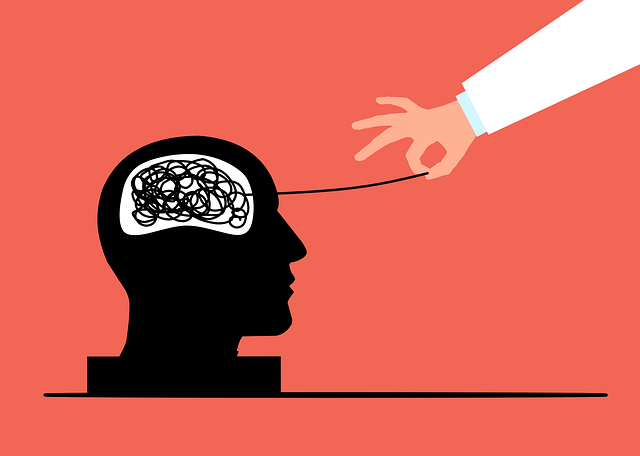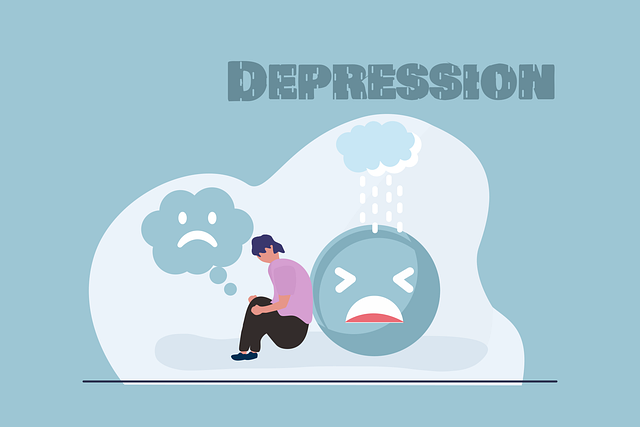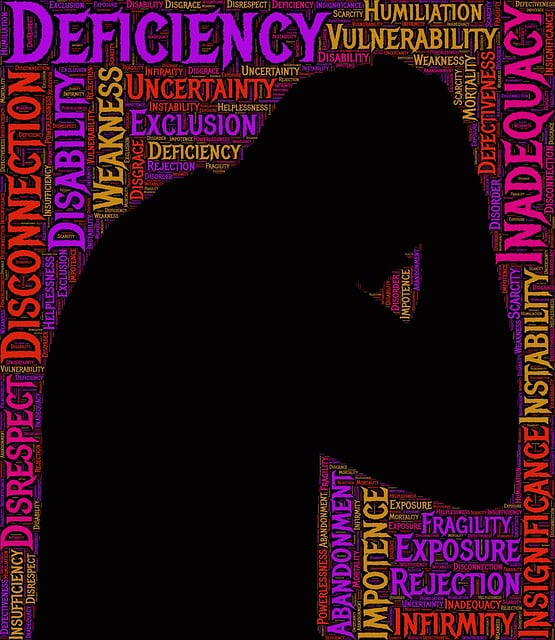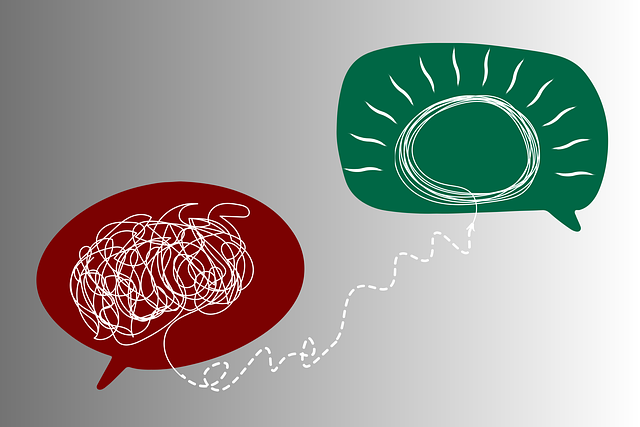Mental health data analysis is a multifaceted process involving structured interviews, digital platforms, and integrated sources like journal entries and clinical assessments for comprehensive understanding. Preprocessing and cleaning are crucial steps to ensure accurate findings. Exploratory analysis uncovers trends and risk factors, guiding targeted interventions and improving therapy models, such as mindfulness meditation and Self-Esteem Improvement programs in Littleton Drug Abuse-Substance Abuse Therapy. Machine Learning (ML) and Artificial Intelligence (AI) enhance predictive capabilities, personalized treatment plans, and emotional healing through advanced data insights. Data-driven strategies, including Mental Wellness Coaching Programs with Self-Awareness Exercises, community outreach, and proactive prevention campaigns, aim to reduce substance abuse in communities like Littleton over time.
Mental health data analysis has emerged as a powerful tool, enabling professionals to gain valuable insights into complex human experiences. This article explores the intricate process of analyzing and interpreting mental health data, from understanding diverse collection sources likeLittleton Drug Abuse-Substance Abuse Therapy programs to preprocessing for accurate insights. We delve into exploratory analysis techniques uncovering hidden patterns and trends, and introduce advanced methods leveraging Machine Learning and AI. Practical applications are highlighted through case studies, showcasing the transformative potential of data-driven approaches in substance abuse therapy.
- Understanding Mental Health Data: Collection and Sources
- Preprocessing and Cleaning: Preparing the Data
- Exploratory Analysis: Uncovering Patterns and Trends
- Advanced Techniques for Interpretation: Machine Learning and AI
- Practical Applications: Case Studies in Substance Abuse Therapy
Understanding Mental Health Data: Collection and Sources

Understanding mental health data involves recognizing that it’s a multifaceted landscape encompassing various aspects of human well-being. Collectively, this includes emotional states, cognitive functions, and behaviors indicative of mental wellness or distress. Data collection methods vary widely, ranging from structured clinical interviews and standardized assessments to digital platforms facilitating self-reporting through journaling exercises and mood management apps. These diverse sources are crucial for capturing nuanced insights into individuals’ mental health experiences, especially when supplemented by trauma support services tailored to address specific issues like substance abuse therapy in Littleton.
The integration of data from these varied sources is essential for comprehensive analysis. For instance, combining self-reported journal entries with clinical assessments can provide a more holistic view of an individual’s mental wellness journey. This multi-modal approach not only enriches the interpretative process but also ensures that interventions and guidance are evidence-based and aligned with best practices in mental health care, ultimately enhancing the effectiveness of services like substance abuse therapy in Littleton.
Preprocessing and Cleaning: Preparing the Data

Before any analysis or interpretation can take place, the data collected from mental health services like Littleton Drug Abuse-Substance Abuse Therapy must undergo preprocessing and cleaning. This initial step is vital as it ensures the accuracy and reliability of the findings. The process involves several critical tasks, including handling missing values, identifying and rectifying inconsistencies, and transforming data to a suitable format for analysis. For instance, in a Mental Wellness Podcast Series Production or Social Skills Training context, researchers might need to categorize qualitative responses into meaningful themes to quantitatively represent participants’ experiences and perceptions.
Effective preprocessing prepares the raw data, making it ready for statistical analyses. It also helps mitigate potential biases that could arise from incomplete or corrupted datasets. This is particularly important in mental health research where nuanced interpretations can significantly impact interventions and treatments, such as stress management techniques. By thoroughly cleaning and preparing the data, researchers can gain deeper insights, leading to more effective strategies for improving overall mental wellness.
Exploratory Analysis: Uncovering Patterns and Trends

Exploratory analysis is a crucial step in understanding complex mental health datasets, especially when addressing issues like drug abuse and substance use disorders in communities such as Littleton. By employing techniques to uncover patterns and trends, researchers and therapists can gain valuable insights into the factors contributing to these challenges. This involves examining demographics, identifying risk factors, and discovering potential correlations between various variables—for instance, the relationship between trauma, stress, and substance abuse.
For example, through exploratory analysis, one might discover that individuals in Littleton with lower levels of self-esteem are at a higher risk of developing substance use disorders, especially if they have access to Trauma Support Services. This could guide interventions focusing on mindfulness meditation and Self-Esteem Improvement programs as preventive measures, tailored to the unique needs of the community. Such insights are vital for designing effective therapy models that address root causes, ensuring more successful outcomes in treating drug abuse and substance use disorders.
Advanced Techniques for Interpretation: Machine Learning and AI

In the realm of mental health data analysis, advanced techniques such as Machine Learning (ML) and Artificial Intelligence (AI) are revolutionizing how we interpret complex human behaviors and emotions. These innovative tools offer profound insights into various aspects of mental well-being, including patterns of substance abuse like Littleton Drug Abuse-Substance Abuse Therapy. ML algorithms can sift through vast datasets to uncover hidden correlations and trends, allowing professionals to predict and prevent potential crises. For instance, AI models trained on historical patient data can identify individuals at high risk of relapse, enabling early intervention and personalized treatment plans.
Moreover, these technologies enhance the emotional healing processes by facilitating Trauma Support Services. Advanced ML models can analyze narrative data from therapy sessions, such as communication strategies used during counseling, to understand trauma responses and tailor supportive approaches. This not only improves patient outcomes but also ensures that Treatment is adapted to meet individual needs. By leveraging Machine Learning and AI, mental health professionals can navigate complex datasets with greater accuracy, ultimately fostering more effective and personalized care for those seeking recovery from substance abuse and other challenges.
Practical Applications: Case Studies in Substance Abuse Therapy

In recent years, mental health data analysis has proven to be a powerful tool in understanding and addressing substance abuse issues within communities, particularly in areas like Littleton Drug Abuse. Through rigorous data collection and interpretation, professionals can identify trends, demographics, and risk factors associated with substance misuse. This enables the development of tailored Mental Wellness Coaching Programs that cater to specific needs, enhancing the effectiveness of Substance Abuse Therapy. By analyzing both individual and collective data, therapists and coaches can design Self-Awareness Exercises that encourage personal reflection and growth, ultimately fostering a healthier community.
Community outreach programs have also greatly benefited from this approach, allowing for more targeted interventions. For instance, implementing evidence-based strategies based on data insights can lead to successful prevention campaigns and improved access to resources. This proactive approach ensures that Community Outreach Program Implementation is not just reactive but proactive, addressing substance abuse at its root, thereby reducing the prevalence of these issues over time.
Mental health data analysis is a powerful tool for understanding and addressing issues like substance abuse. By leveraging techniques from machine learning and AI, as demonstrated in case studies involving Littleton Drug Abuse-Substance Abuse Therapy, we can uncover hidden patterns and trends that guide more effective treatment strategies. Preprocessing and exploratory analysis are foundational steps that ensure data quality and enable advanced interpretation, ultimately leading to improved outcomes for those seeking mental health support.














